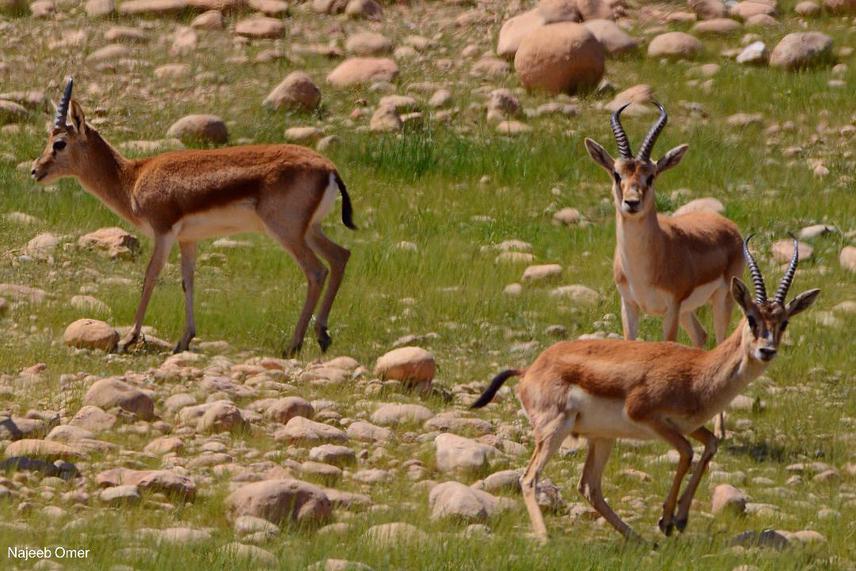Emad Dawood Kaky
Biodiversity faces unprecedented extinction rates from global climate changes, invasive species, habitat loss, and human activities; these will be difficult to halt if there is no urgent plan for conservation. Mammals are some of the species of most concern, threatened by habitat loss and fragmentation: conservation assessments are vital. These need the kind of reliable data that are very hard to obtain in developing countries. The Goitered gazelle (Gazella subgutturosa) is a vulnerable species globally, and Iraq is one of the countries where this species faces extreme levels of illegal hunting. This project will constitute the first actions of a long-term plan aiming to create baseline data and information about the Goitered gazelle for conservation in the Garmian region of Kurdistan (Iraq). Our findings will show how this region suffers from several different crises (habitat fragmentation, climate change, poaching, and land use changes), but will also show it to be one of the richest areas for wildlife. In light of this, the region needs urgent environmental management and conservation planning to save its unique and fragile biological richness.

©Najeeb Omer.
According to the IUCN Red List, the Goitered gazelle Gazella subgutturosa is Vulnerable and the population is decreasing. The Garmian region of Iraq is a steppe region 140 km southeast of Suleimaniyeh province, 30 km from the Iranian border, and about 170 km north of Baghdad. It is an area of about 13000 km² and includes three main towns (Kalar, Kifri, and Khaniqin). It is watered by two main tributaries, the Sirwan and Alwan rivers, both of which flow in from the eastern part of Iran. This area is biologically diverse for wildlife, and is listed as one of the vital areas for the Goitered gazelle and the wild goat Capra aegagrus in the Kurdistan region. These species are suffering from population declines because of various kinds of threats such as human activities, human disturbance, and climate change and poaching. All these factors together are pushing the Goitered gazelle and other species towards extinction.
The area is in the moist steppe zone, and although most of the hills lack vegetation, it is still rich with grazing land vital for the survival of the Goitered gazelle to survive. Although the dominant livelihood of the people is agriculture, mainly wheat and barley, the area is commercially important because it is the main road link between Baghdad and the Kurdistan region. As a result there is currently very rapid construction of housing and commercial buildings from agricultural and natural areas without any consideration of biodiversity and conservation planning. This will lead to fragmentation of the habitat and will affect biodiversity in general and the gazelle in particular.